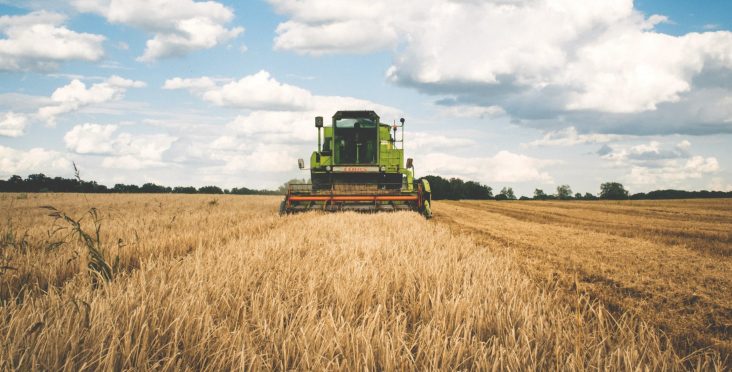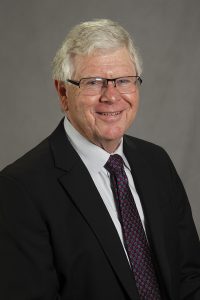Dr. Mark Cochran set to retire from Arkansas System Division of Agriculture
by September 2, 2021 12:13 pm 1,060 views

After guiding the University of Arkansas System Division of Agriculture through a decade of growth, vice president for agriculture Dr. Mark J. Cochran will retire effective Sept. 30.
During his tenure, Cochran encouraged the growth of the entrepreneurship and commercialization of research products and obtained funding to continue the Division of Agriculture’s research and extension work, enabling the traditional land grant mission to remain strong in Arkansas.
“After 39 rewarding years in the University of Arkansas System, retirement is not a decision that was made casually or in haste,” he said. “It’s been an honor to lead the Division of Agriculture and there is still much that can be accomplished. However, the time has come to pass on that responsibility to the next leader of the division and to enjoy time with my family and especially my granddaughter.”
Cochran said one of the most satisfying aspects about his time within the Division of Agriculture was that its people and work “probably touch more lives than any other institution in higher education.”
“We are the only higher education institution that has faculty and staff in all 75 counties of Arkansas and programs that reach from cradle into adulthood,” he said. “I’m particularly proud of the impact made on youth by our 4-H program and how that impact will continue into the future.”
Through the outreach of the Cooperative Extension Service and the research from the Arkansas Agricultural Experiment Station, Cochran said he was proud of the division’s role in providing Arkansas’ largest industry with vital, science-based best practices and new technologies and by serving the state in the continual improvement in sustainability and natural resource management.

“The land grant mission is as relevant today as it was in the beginning,” Cochran said. “We are fortunate to have highly-qualified faculty, county agents, staff and leadership who are well-positioned to continue to make a difference for Arkansans of all walks of life in all counties of the state.”
Cochran said he was also proud of the partnerships the division has with UA-Fayetteville, UA-Monticello and Arkansas State University to ensure high-quality education for students in agriculture, forestry and life sciences.
Cochran said one of his proudest achievements as a faculty member was the creation of the COTMAN program, which earned him both a John W. White Team award and Arkansas Cotton Achievement award in 1999. COTMAN is a computer tool aimed at helping cotton growers make better management decisions for their crop, especially the end-of-season decisions on when to terminate insect control, start harvesting, and how management practices can alter the crop’s development.
Among Cochran’s accomplishments was attaining the first increase in the Division of Agriculture’s recurring funds in more than a decade. Under his leadership, division faculty and staff adapted in-person activities to online platforms to continue delivering services as COVID-19 emerged, while simultaneously restructuring and merging all of its business and human resources functions into one system for greater transparency.
“Dr. Cochran has been an unabashed cheerleader for Arkansas agriculture for many years, and he will be missed,” said Dr. Donald R. Bobbitt, president of the University of Arkansas System. “Although he conducts his business in a very calm and professional manner, Dr. Cochran is a fierce advocate for the needs of the farming community in this state.”
Bobbitt said he will spend the next few weeks visiting with stakeholders across the UA System and the state’s agricultural community to determine steps for identifying the next leader of the division.
Cochran’s tenure as system vice president began in January 2011. He had previously served as associate vice president and head of the Arkansas Agricultural Experiment Station, the research arm of the Division of Agriculture. Prior to his appointment as AVP, Cochran spent a decade as head of the department of agriculture and agribusiness at the University of Arkansas.
From August 1987 to August 1988, Cochran was a visiting professor at Texas A&M in the department of agricultural economics. His research focused on the incorporation of risk management components into expert systems and simulation models. He joined the division in 1982 as an assistant professor in what was then called the Department of agricultural economics and rural sociology.
An Arizona native, Cochran earned a bachelor’s in agricultural economics from New Mexico State. At Michigan State University, he earned a master’s degree in agricultural economics and a minor in environmental and natural resource economics. He earned his Ph.D. in agricultural economics, with minors in environmental and natural resource economics, production economics, public policy, and systems science.
